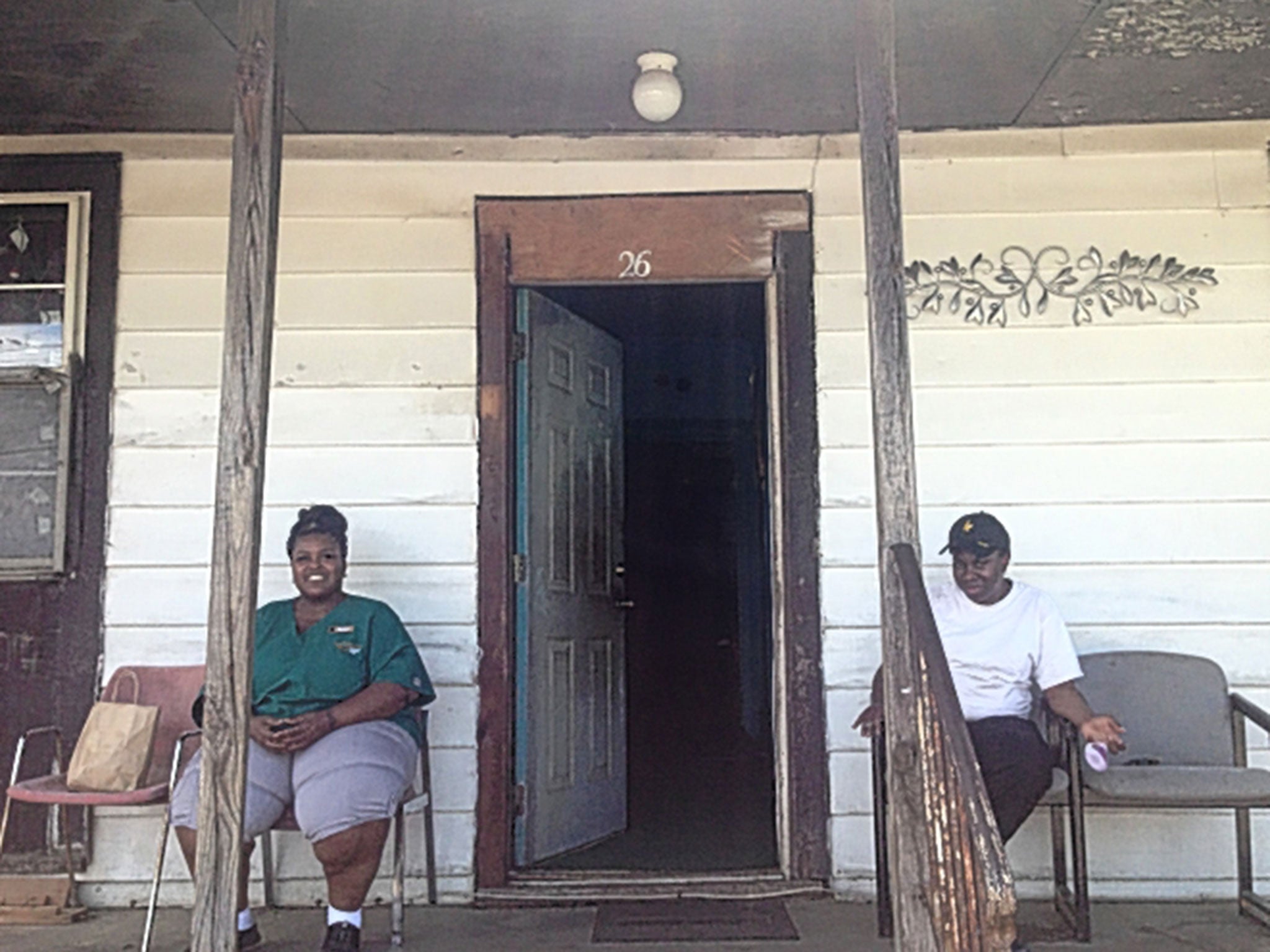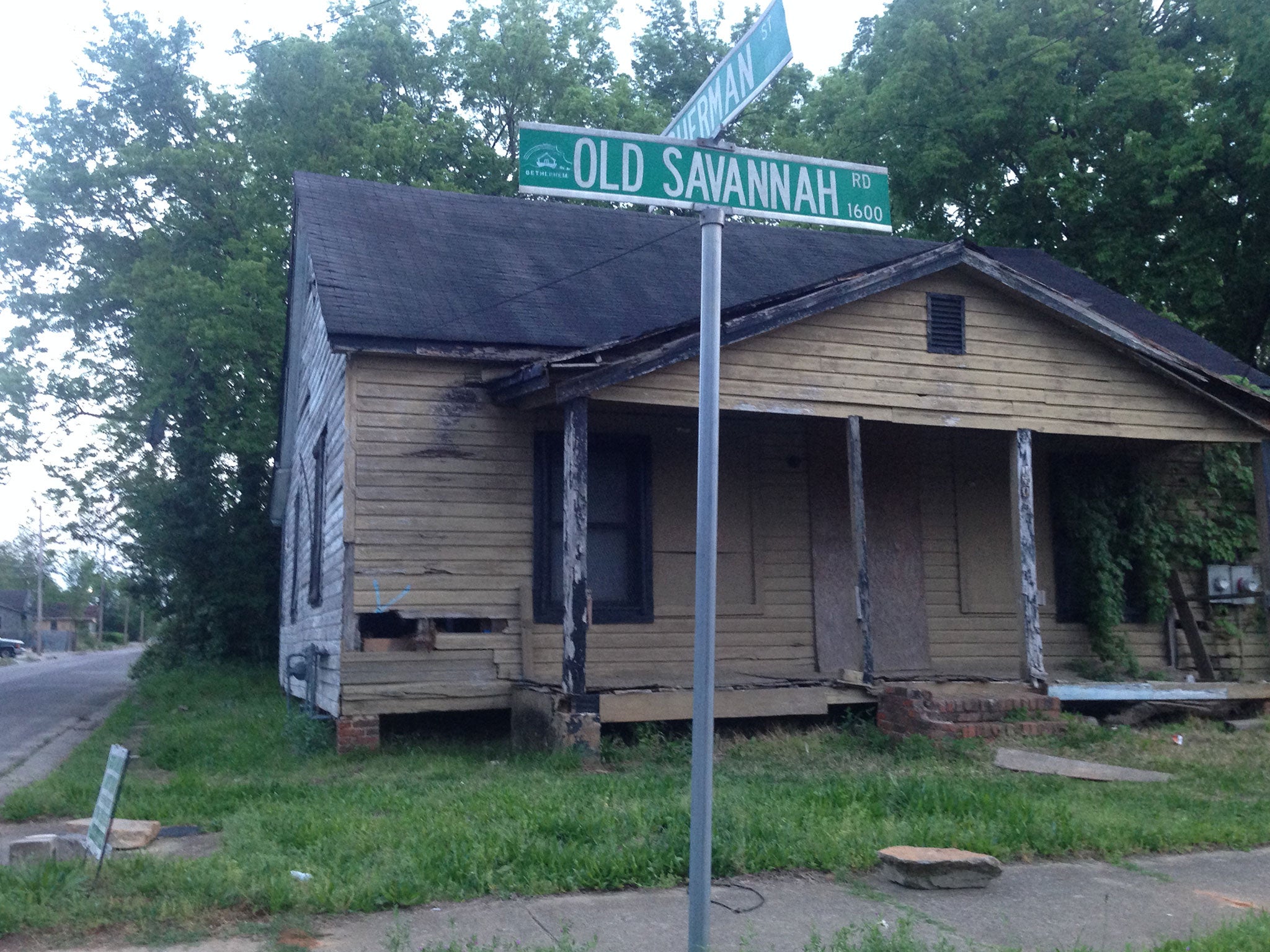Ian Herbert: Not even Tiger Woods can inspire locals in Augusta
While golf's near-monochromatic cabal of multimillionaires play at Augusta, the town's residents are too busy making ends meet to care about the tournament, Ian Herbert hears

Your support helps us to tell the story
From reproductive rights to climate change to Big Tech, The Independent is on the ground when the story is developing. Whether it's investigating the financials of Elon Musk's pro-Trump PAC or producing our latest documentary, 'The A Word', which shines a light on the American women fighting for reproductive rights, we know how important it is to parse out the facts from the messaging.
At such a critical moment in US history, we need reporters on the ground. Your donation allows us to keep sending journalists to speak to both sides of the story.
The Independent is trusted by Americans across the entire political spectrum. And unlike many other quality news outlets, we choose not to lock Americans out of our reporting and analysis with paywalls. We believe quality journalism should be available to everyone, paid for by those who can afford it.
Your support makes all the difference.The economic ripples of the golf tournament were trickling down across the railroad tracks to the other side of Augusta’s great class and race divide on Saturday afternoon, though not in a way to make anyone feel proud.
While the white people were being thrilled by the tightening tension of a golden afternoon, Cynthia Hayward was just glad to be back under the shade of her mother’s veranda after another long shift at the Walton Quality Inn and 10 hours of the $7.25 (£4.80) per-hour minimum wage. “Yeah, there’s more work just now because of the tournament an’ all,” she says, still in starched green hotel uniform and “Cynthia” name badge, but she wears a weariness as well as a smile. She has come back home to live here, with her 80-year-old mother, in one of the dead-end stretches off Old Savannah street, perhaps two miles from the Augusta National, and though the bright silver adornment on the front of the clapboard house tells you there’s pride, it’s a most desperate and unlovely place.
The roof of the rented property is disintegrating and the paint peeling but it’s something that the building even still stands. All but three houses on this street have given up the ghost. They’re collapsed or fire gutted and empty: abandoned to their fate. “People are dying round here. She died, and he died, and he died,” Hayward says, nodding at the gutted remnants of three of the neighbouring structures which are succumbing to the collapse. “I had to come back here because things happened but I can’t earn enough money to move on.” They say around here that the municipal authorities are waiting for the decay to become so endemic that the owners will give the places away and a rebuild can start. A few pockets of new development nearby bear out that notion, though this Augusta – the city out of camera shot - is Detroit by any other name.

So don’t expect much talk of golf, when the Washington Road has taken you down beyond the giant images of Phil Mickelson promoting Rolex watches. “It’s not our game,” says Esau Butler Jnr, as he leaves Hayward’s place and heads off to nowhere in particular. “It’s not the black man’s game. We’re baseball, boxing, football. It don’t seem our natural thing.” Tiger Woods, the only Afro-American playing the Masters, is flourishing on the back nine as we speak but they’re not following him here. “Guys hitting a ball with sticks. Not our thing,” says Butler.
It’s the same over on Broad Street, where the young men sitting in the cool bar with the shutters down are fixated on football and music videos. There’s suddenly a flash of footage of Jack Nicklaus at Augusta – it looks like early 1980s – but no-one’s looking. “Not our game,” says Al Bland. “There are places to play out here but they’re high prices. You got to buy all the equipment. Black guys like me stick to the contact sports. We like what we like.”
These streets are not entirely a golf desert. There’s 23-year-old Arnold Taylor, waiting in the shade for his next transport job, driving people in and out of the National. He’s a student at Georgia Regents University and plays there, professes an interest, though he’s disinclined to watch the Masters on free TV. There are no visual references to the Masters on Broad Street, beyond the ‘golf traffic’ road signs pointing up the hill.
The elite, mono-racial nature of the tournament does not seem to worry the National. When the club’s chairman, Billy Payne, gave his annual address last Wednesday, in a room flanked by 50 all-white National committee members and faced by maybe 100 all-white journalists, he talked of the “growing emphasis on our efforts to help others grow the game”.
The examples he cited were the sixth Asia Pacific Amateur Championship – “that important region of the world” – and the inaugural Latin America Amateur Championship in Buenos Aires. No notion that this immensely wealthy club might actually buy up a tract of land – as it periodically does when extending the free car parking – and spend some of its lavish TV income on the creation of a subsidised course, engendering a love of golf across the lines.
It’s people like Carl Jackson and his brother, Jimmy Wright, who are taking up that mission. Jackson is the caddie whose 53 years at the Masters ended last week with his partner Ben Crenshaw’s retirement from the competition. The charity taking his name – Carl’s Kids – has been trying since 2009 to draw those from Old Savannah and other places on the wrong side of the tracks into golf and give them a sense of value and purpose. “The kids say, ‘Oh no, I can’t afford that’,” says Wright. “‘I’ll never have the tools and the means to play golf.’ But there’s a gap in their lives and we think golf can fill it.”
Jackson and Wright are hoping that the National will see the charity as a vehicle for “taking away the negative stigma” and do something about the fact that the Masters “is more about itself than others”. Making an individual donation to the charity is easy, through the website carlskids.com, but less so is getting the sport’s big sponsors – and the National – to do the same. “We are still hoping that the National will embrace what we’re doing,” Wright says.
Hayward won’t be looking out for an announcement. “Golf’s not part of the way of life,” she says. “I was at school at Barrett Elementary near the National but they never talked about it at school and we never played it. We need some place for the kids to play and make them want to call this place home.”
Join our commenting forum
Join thought-provoking conversations, follow other Independent readers and see their replies
Comments